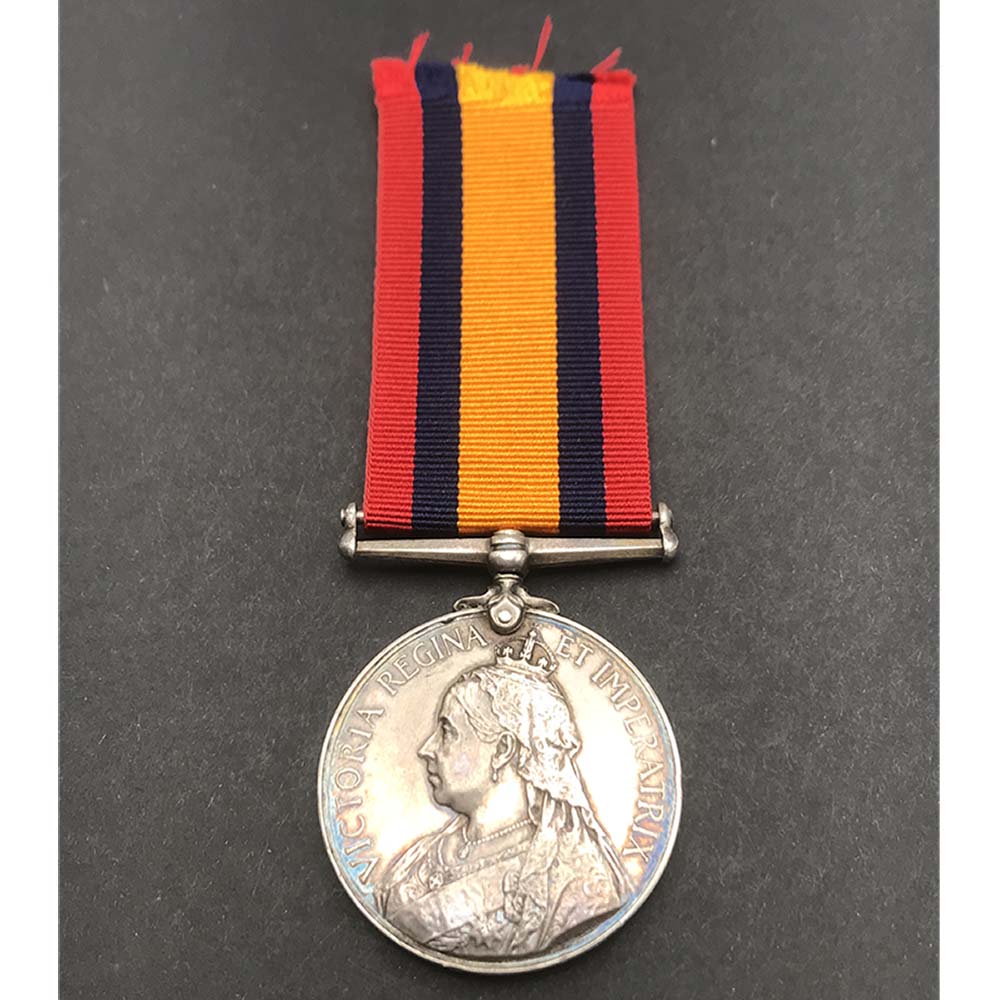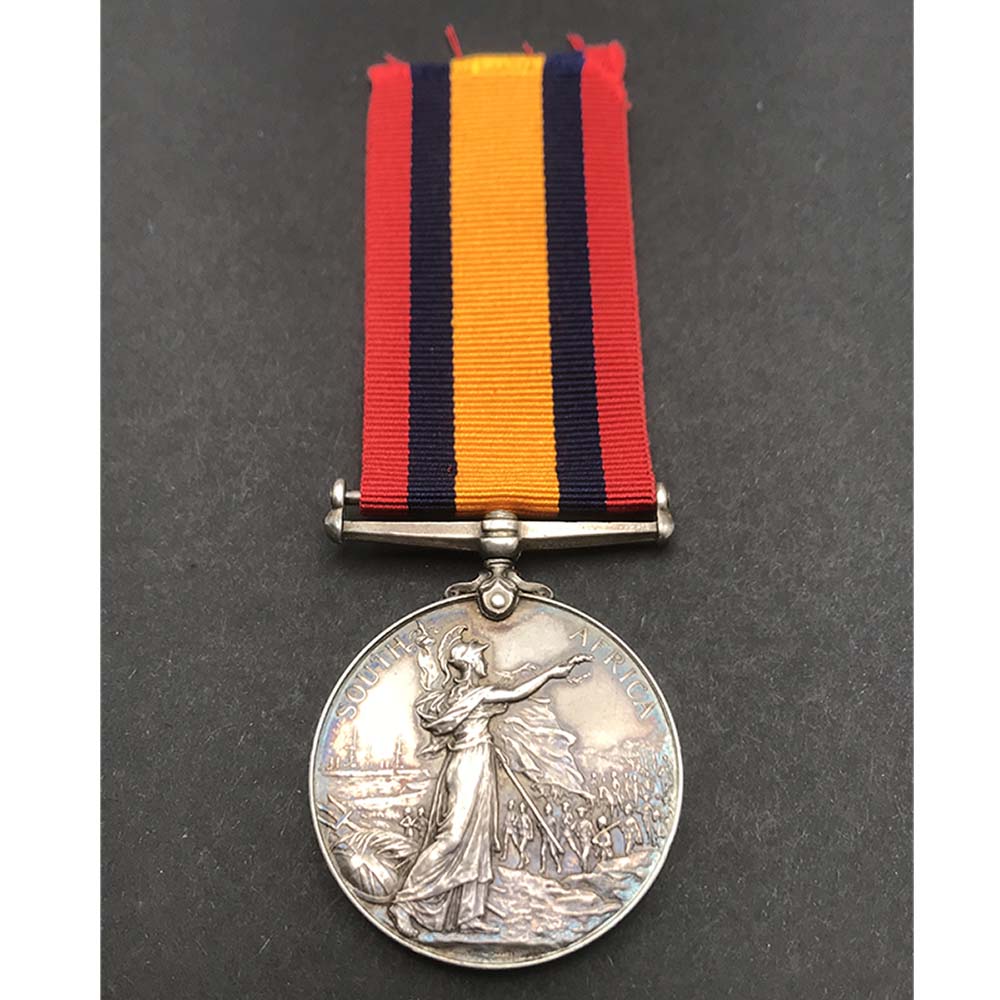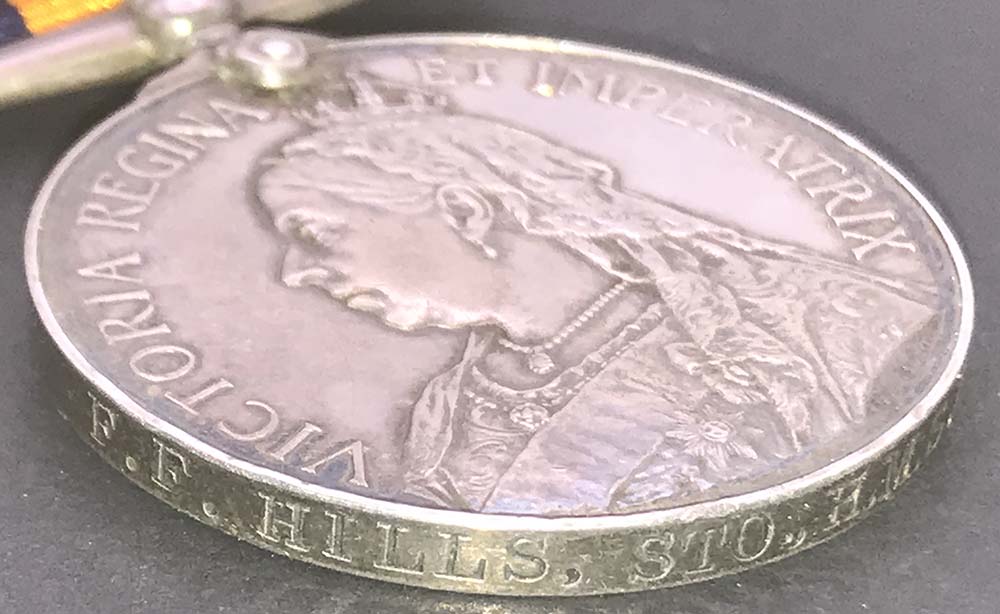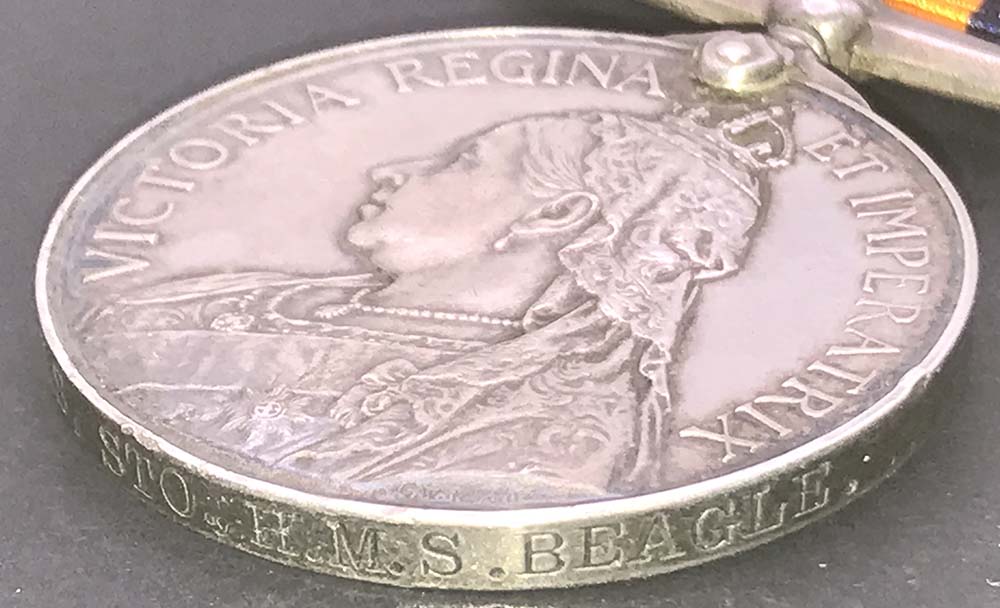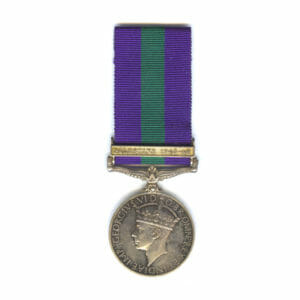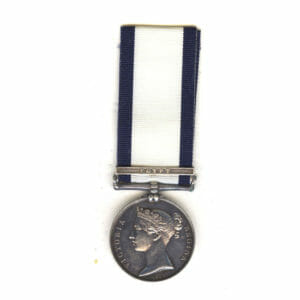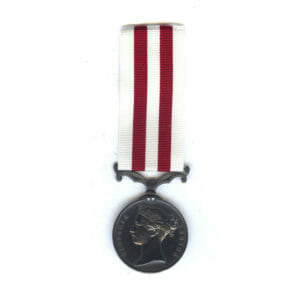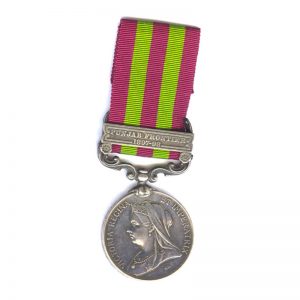Description
Queen’s South Africa Medal, Stoker F.F. Hills, HMS Beagle, MID for Battle of Jutland on HMS Onslow, whilst in the Engine Room as she was disabled by enemy fire. Fought the Bolsheviks at Vladivostok in 1919.
Officially impressed: “F. F. Hills, Sto., H.M.S. Beagle”
Provenance, sold as Lot 366 in DNW on 16th October 1996, part of the Douglas-Morris collection of Naval Medals.
Brief Career Highlights including the most famous naval battles including Jutland, both the First and Second Battle of Heligoland Bight (1914 and 1917), being hit by explosions, the Irish Easter Rising, and finally a trip to Vladivostok to fight the Bolsheviks including a number of Actions against Russian Ships and saving refugees from Tetyukhe:
Earned this Medal during the Boer War on board HMS Beagle 1901-1902.
Severely injured in the disastrous boiler room explosion on board HMS Britannia then promoted to Leading Stoker soon after during 1908.
Fought in the early Naval action of the Battle of Heligoland Bight on 28th August 1914 as Stoker Petty Officer of HMS Fearless.
Fought in and was decorated with the award of a Mention in Despatches Oakleaf, for his service in the Engine Room as Stoker Petty Officer of HMS Onslow during the famous Battle of Jutland on 31st May – 1st June 1916.
On which occasion the ship was disabled by shellfire after firing a Torpedo and had to be towed back to Aberdeen.
HMS Ursa from 1st October 1917 to 7th March 1918, where he fought at the Second Battle of Heligoland Bight, during which battle under Commander John Tovey, they were amongst the first destroyed to Launch a Torpedo at the enemy during the battle. Following this Capt Tovey was awarded the Croix de Guerre.
During Served HMS Kent from 14th June 1918 – 7th August 1919, on 14th July 1918 she was refitted and set off for SIBERIA, stopped by South Africa and Singapore in August, she arrived in Hong Kong on 10th October.
After some engine issues (no doubt attended to by Sto PO Hills) she set off for Vladivostok via Shanghai, China and Nagasaki.
One arriving on 4th Jan 1919 they supported to American and Japanese Forces in action against the Bolshevik Forces.
Amazingly half of her Royal Marines and a few crewmen volunteered to man a 6 inch gun and some 12 pounders left behing by the Suffolk in Omsk on 6th April, they then converted a tugboat in Perm to mount their 12 pounder guns and modified a large barge for the 6 incher.
Then on 23rd May 1919 they engaged a Bolshevik River Flotilla near Elabuga and drove 3 of the Communist Ships ashore and set one on fire.
On 13th May 1919, the Kent with Sto PO Hills accompanied the Russian Steamship SS Georgie carrying troops to seize Tetyukhe, the ships later loaded up refugees and arrived back at Vladivostok 3 days later. Kent then departed Vladivostok for Hong Kong via Weihaiwei. She was paid off on 7th August and this was the end of a long naval career as he was pensioned off soon after.
One of 7 MID recipients for Battle of Jutland, 3 DSMs were also earned by the ship, along with 5 St George Crosses.
Before his forays with Submarines, he was on board the Destroyer HMS Onslow, where he took part in the Battle of Jutland, for which he was granted a special commendation for his service, his papers reading:
“N50082/16 Commended for his good service in action in the North Sea 31 May – 1 June 1916”
This led to the award of the Mention in Despatches Oakleaf announced in the Battle of Jutland Gazette of 15th September 1916.
“The following awards have been approved for services rendered by Petty Officers and men of the Grand Fleet in the Action i the North Sea on the 31st May – 1st June 1916.”
He was an original Crew Member of HMS Onslow, who first aided the Infantry Brigade Transport to Ireland during the start of the Easter Rising on 24th April 1916, HMS Onslow being the M-Class Destroyer that guarded the transports carrying the troops from Liverpool to Dublin.
Stoker Petty Officer Francis Frederick Hills, was born on 28th April 1878 in Enfield, Middlesex.
At about 18 he signed up for the Navy having been a Greengrocer on 29th July 1896.
He saw the following service in the Boer War Period:
HMS Majestic, 1st July 1898 – 18th January 1901, with slight interruptions from being placed in the Cells.
HMS Duke of Wellington, 19th Jan 1901 – 20th May 1901
HMS BEAGLE, 21st May 1901 – 29th July 1904, during which time he earned this medal.
Promoted Stoker 1st Class on the Revenge, 1st July 1906
Promoted Leading Stoker on Britannia, 24th September 1908. Also at this time severely wounded in the disastrous boiler explosion on board, 5 men in the stokehold were injured, with Hills being severely.
Reached his final rank of Stoker Petty Officer on 2nd November 1910, on board HMS Orontes.
His WW1 period ship postings, he saw continuous service from 1898 all the way to 1919:
HMS Fearless, 14th October 1913 – 30th September 1914
HMS Victory, 1st October 1914 – 19th August 1915
HMS Attentive II, 20th August 1915 – 27th Feb 1916
HMS Victory II, 28th Feb 1916 – 3rd APril 1916
Woolwich (Onslow), 4th April 1916 – 30th September 1917, Specially commended for the Battle of Jutland service.
Woolwich (Mesa), 1st October 1917 – 7th March 1918.
HMS Victory II, 8th March 1918 – 13th June 1918
HMS Kent, 14th June 1918 – 7th August 1919, this involved a grand journey around the globe and fighting in the Russian War of 1919 at Vladivostok.
HMS Victory II, 8th August – 27th November 1919, when pensioned out after 21 years.
With his retirement he finally returned back to his home town and died during 1935 in Edmonton, Middlesex
